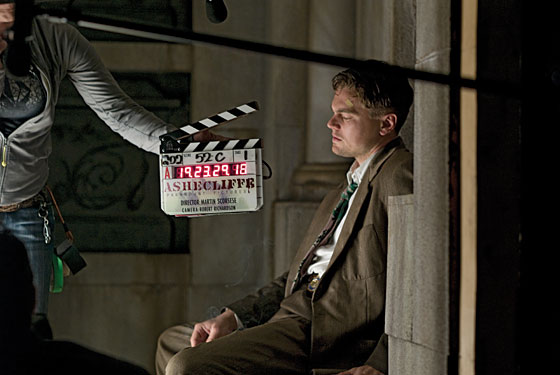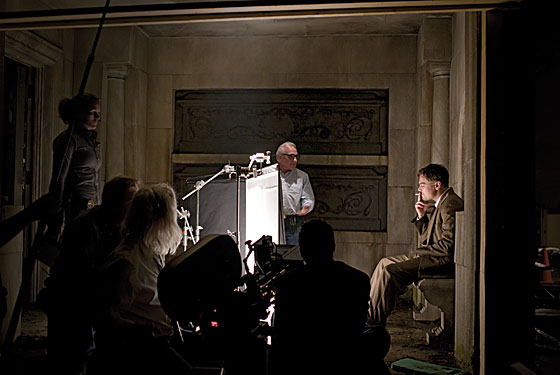
Martin Scorsese was surprised to learn that it had been ten years since he first worked with Leonardo DiCaprio, on the set of Gangs of New York. “It doesn’t seem like that,” said Scorsese, from Rome, where he’s promoting their new film, Shutter Island. “There’s no doubt that working with Leo—he’s been an inspiration for me.”
Prior to DiCaprio, of course, Robert De Niro was Scorsese’s muse. But it was a collaboration of peers; the two grew up together, on and behind the camera, creating scrappy, violent, indelible classics that included the best work of both. The relationship between DiCaprio and Scorsese, with their three-decade age difference (Scorsese is now 67; DiCaprio, 35), began as classic teacher and mentor. But curiously, that has evolved into a more equal partnership, which seems to surprise even Scorsese. “That’s something very special, particularly with different generations,” he says. “Somehow, particularly in the past three films—The Aviator, and even more so in The Departed, and now Shutter Island—I became aware of us working as a team in terms of exploring character.” Shutter Island, in particular, was unexpectedly complex and “very, very intense,” says the director. “But I’m finding the results to be pretty satisfying. I think Leo is, too.”
Shutter Island, their fourth film together, is based on Dennis Lehane’s thriller. DiCaprio plays a tormented detective investigating a case in a mental institution. “This was a trip we all took, a journey to Wonderland, like Alice,” Scorsese says. “We didn’t know where we were going to wind up, scene by scene. We had to take it much further than anticipated, but I felt totally confident going down that road with Leo.” Some scenes were so tough that, once they were done, “I remember both of us looking at each other and being so thankful [the scene] was finished and we could get some sleep. We were just glad to get them over with.”

Scorsese showed DiCaprio several films for inspiration, including 1944’s Laura, with Dana Andrews, and 1947’s Out of the Past, with Robert Mitchum. Both showcased a particular kind of man—“the war-torn veteran who comes back and looks at life a different way, carrying it down to his body language, the way he wears his coat and hat.”
In DiCaprio, Scorsese—an avid film preservationist—says he’s found a throwback to an earlier style of cinema. “The key thing with Leo is his extraordinary cinematic face. He’d have been a great silent-film actor because there’s so much going on in his eyes, you read so much into his face.”